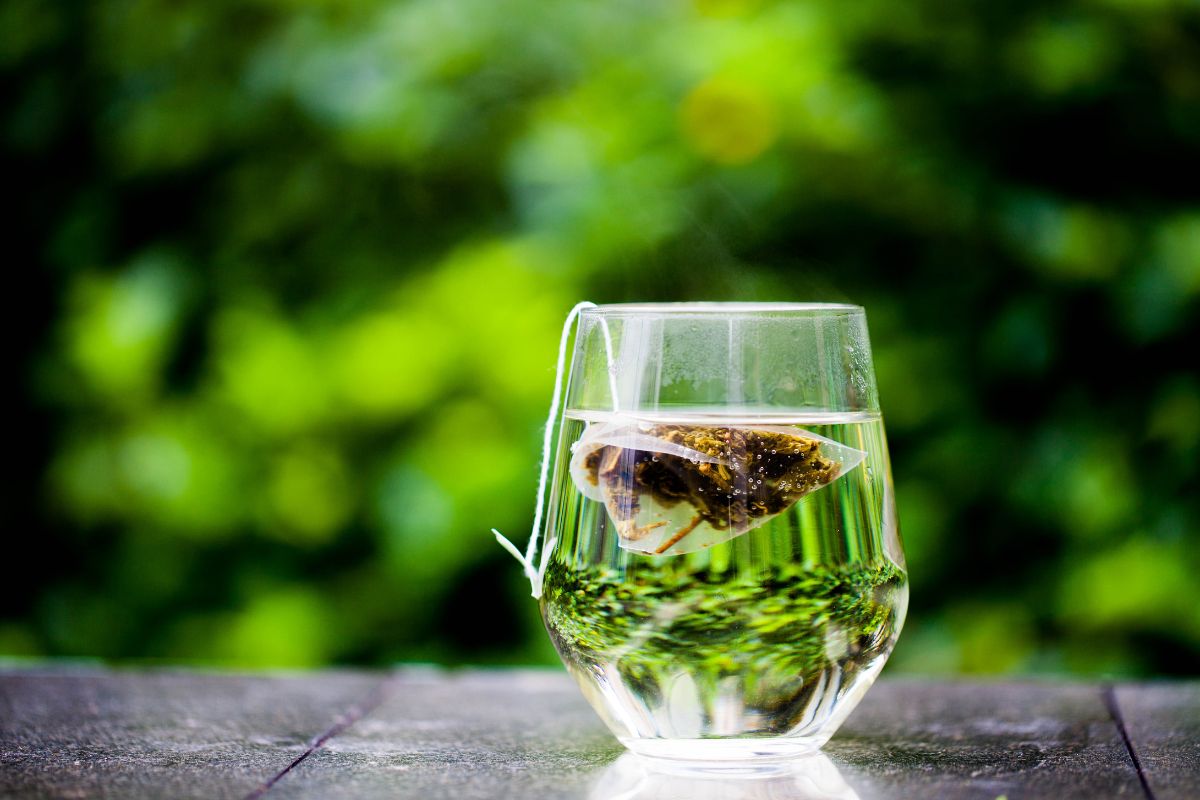
Should I drink decaf or caffeinated green tea?
Green tea is a great source of disease-fighting polyphenols and antioxidants, but it also contains caffeine. If caffeine interferes with your sleep or interacts with medications you take, then decaf green tea may be a better choice for you.
However, the decaffeination process reduces antioxidants and healthy chemical compounds in tea leaves, so you’re not completely free from chemicals. Fortunately, there are natural decaf methods that maintain the most flavorful results.
What’s the difference?
While the benefits of green tea are plentiful, it does contain caffeine. For some people, this can lead to discomfort. However, consuming decaf green tea can still offer the health benefits of this popular beverage without the associated jitters and headaches that come with too much caffeine.
Decaf green tea leaves have been processed to remove the caffeine molecules that are naturally found in the leaves. There are a few different methods used to do this. The most common is water softening and then using carbon dioxide to act as a solvent, which removes the caffeine. Other popular methods use ethyl acetate or methylene chloride, which are considered to be less natural.
Regardless of how the tea is decaffeinated, it is important to choose organic and fair trade green tea, as this will ensure that no chemicals are used in the process. It’s also best to avoid any preservatives, flavoring or additives, as these can negatively impact the health-promoting properties of the tea.
There are many great options for organic, decaf green tea available online and in stores. Look for a reputable tea company that offers green teas grown at higher altitudes, as this can lead to a more flavorful brew. Additionally, it’s good to find a company that is transparent about their processing and sources. This will give you peace of mind that the company you are buying from is ethical and is holding themselves to high standards.
Do decaffeinated teas have the same health benefits as caffeinated teas?
The health benefits of tea are often attributed to the EGCG (epigallocatechin gallate) antioxidant found in many types of green and black teas. EGCG is known to help prevent heart disease, lower cholesterol and protect against stroke by breaking up protein plaques in the blood vessels. Additionally, some studies have shown that drinking tea can help reduce the risk of diabetes, cancer and high blood pressure.
While decaf tea still contains some caffeine, it is typically at a much lower level than caffeinated teas and will not cause any adverse effects for individuals who are not sensitive to stimulants. For those who prefer to avoid any caffeine at all, we recommend trying herbal teas or rooibos, both of which contain zero caffeine.
There are several ways to remove caffeine from tea leaves, but the most common methods use chemical solvents such as ethyl acetate and methylene chloride, which also remove some of the flavor and nutrients from the leaves. These methods are not only environmentally hazardous, but they can alter the natural compounds that deliver a wide range of health benefits.
For a more natural option, try water processing or carbon dioxide decaffeination. These methods are used by companies such as Hag and Harney & Sons and remove the majority of caffeine from the leaves without altering any of the other beneficial properties of the tea.
Do decaffeinated teas taste as good as caffeinated teas?
The truth is, it’s not really possible to decaffeinate teas without sacrificing the flavour. Even the best decaffeination methods lose a large portion of the flavour profile. This is especially true for methylene chloride and ethyl acetate decaffeination methods, which involve soaking the leaves in chemical solvents.
This can also alter beneficial compounds such as antioxidants, making them less potent. Thankfully, the carbon dioxide method does a better job at preserving the flavour of the tea while removing caffeine. This is why we only use this method to decaffeinate our organic sencha green tea.
Decaf green tea can be a great option for people who want to enjoy the taste of a delicious cup of green tea, but are sensitive to caffeine. However, it is important to note that decaf teas don’t offer the same health benefits as caffeinated teas. This is because the decaffeination process removes most of the water-soluble vitamins and minerals in the tea leaves.
To get the full health benefits of green tea, it is important to choose organic sencha decaf. This way, you can be sure that you are getting a quality, decaffeinated tea that is still packed with healthy antioxidants.
Do decaffeinated teas have any health risks?
Decaf green tea does indeed have many health benefits and is an excellent option for those who are caffeine sensitive. It can improve brain function, reduce the risk of heart disease and help with weight loss. It can also help prevent diabetes by improving blood sugar sensitivity, reduce dental plaque and freshen breath. But the process of decaffeination can have a negative impact on the health-supporting polyphenols and antioxidants in green tea leaves. This is particularly true for the most common decaffeination methods (methylene chloride and ethyl acetate).
The good news is that you can avoid these unhealthy chemicals by opting for natural ways of removing caffeine from green tea such as steaming, drying or frying. It is also a good idea to store your decaf green tea in a dark and dry cupboard so that it can maintain its quality, taste and health benefits for longer.
It’s also worth mentioning that even though decaf green tea does have significantly less caffeine than caffeinated tea, it can still contain trace amounts of caffeine. This is because the decaffeination process does not fully remove all the caffeine from the leaves. Generally, this amount of caffeine is not enough to cause any negative effects for most people but if you have very severe sensitivity to caffeine, then it may be best to avoid green tea altogether.



